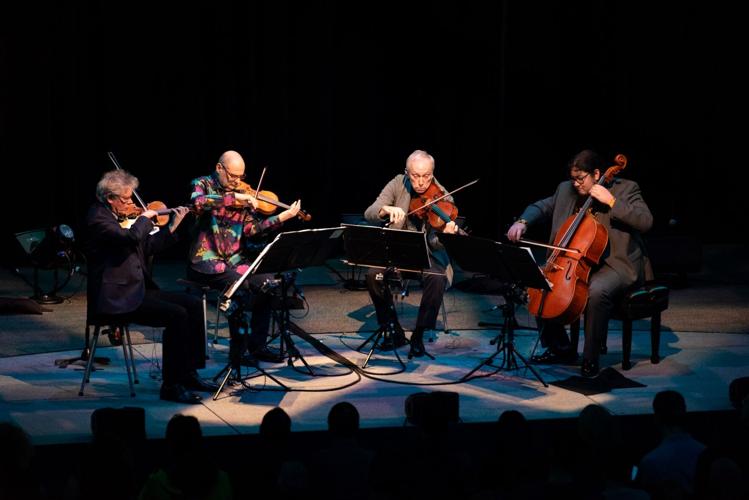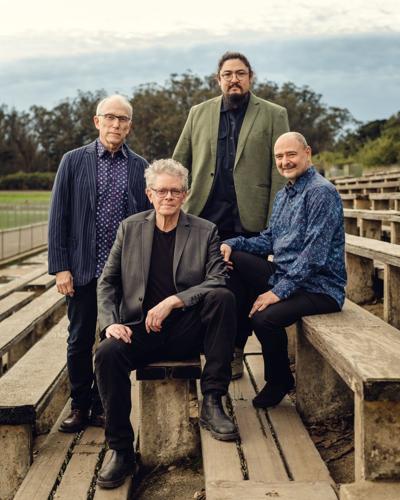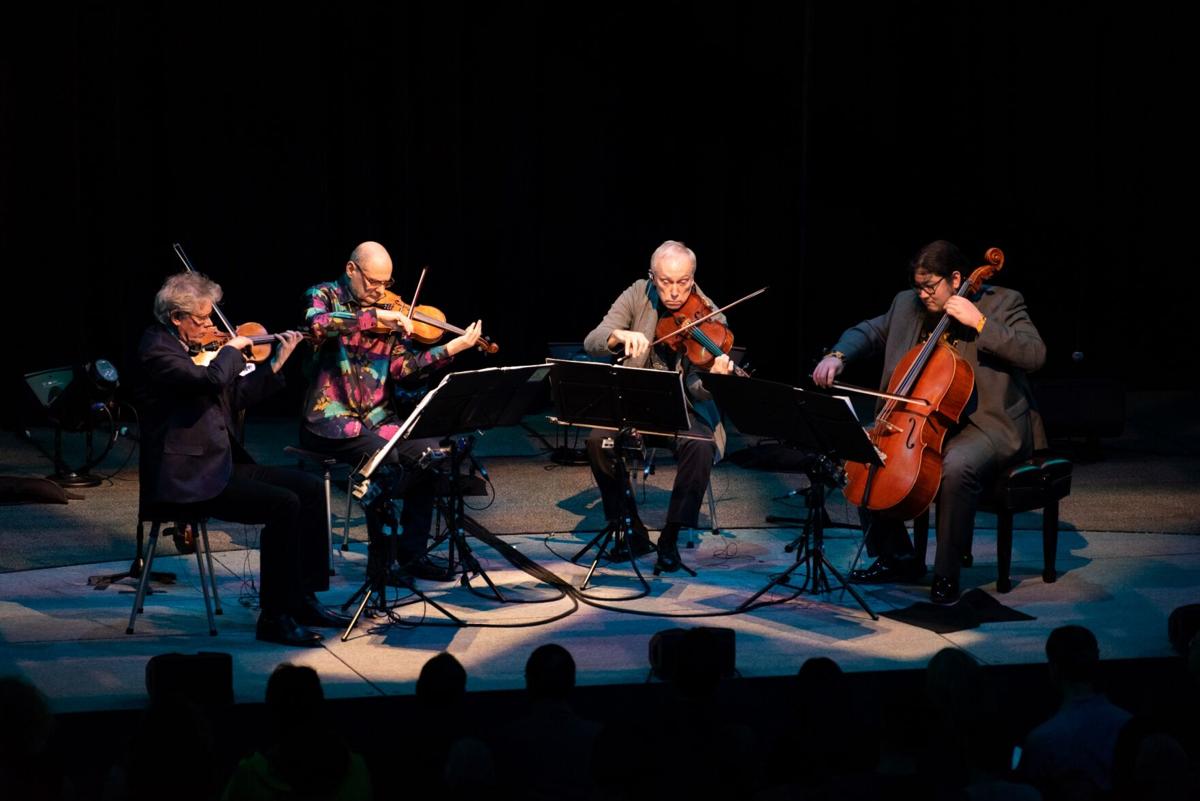It’s fair to say that in its 50 years, Kronos Quartet has upended the notion of the traditional string quartet.
Don’t take our word for it.
Check out the program for the group’s 50th anniversary concert with Arizona Arts Live on Thursday, Feb. 22, at Centennial Hall.
No quartets from Beethoven, Brahms or Mendelssohn.
Nothing from Haydn, Schubert or Mozart.
Not a whisper from Dvorák or Shostakovich.
But there is “Kiss Yo’ Ass Goodbye,” composed by Terry Riley and Sara Miyamoto, taking cues from the late experimental jazz composer Sun Ra’s 1982 song “Nuclear War.”
There’s Serbian-American composer Aleksandra Vrebalov’s “Gold Came From Space” and a string quartet arrangement of Mexican composer Severiano Briseño’s “El Sinaloense” (The Man from Sin).
Popular Bay Area electronica DJ Jlin chips in “Little Black Book,” commissioned by Kronos; and Canadian composer Nicole Lizée’s “Zonelyhearts,” which the New York Times described as “a lengthy homage to ‘The Twilight Zone,’ tacked wildly between willful wackiness — including using Pop Rocks (yes, the classic 1970s candy) as a form of percussion, amplified with the performers’ open mouths nestled up to microphones — and existential musings on censorship and surveillance.”
“That’s the kind of stuff we’re bringing with us to Tucson,” Kronos founder and violinist David Harrington said with a giggle during a phone call earlier this month. “Like I say, we’ve had a lot of fun.”
The cornerstone of the Tucson program: The world premiere of “The Black Art Book of St. Cyprian the Mage” by Trey Spruance, the founder and guitarist for the 1980s experimental rock band Mr. Bungle. Spruance, who has called the Phoenix area home since the pandemic, wrote the eight-movement work for Kronos on a commission that was sponsored by more than a dozen organizations including Arizona Arts Live.
“I can’t wait to do Trey’s piece. It’s really cool,” Harrington said.
Thursday’s concert, Kronos’s first here since November 2021, celebrates the quartet’s 50 years together. But this is not a retrospective; the repertoire looks more to the future than the quartet’s past.
But the past definitely foreshadowed Kronos’s future.

Kronos Quartet — from left, violist Hank Duff, cellist Paul Wiancko, violinist John Sherba and violinist David Harrington — brings its 50th anniversary tour to Centennial Hall on Thursday, Feb. 22.
Harrington, a violinist who had been playing string quartets since he was 12, started Kronos after hearing avant-garde composer George Crumb’s electronic string quartet “Black Angels.”
“After hearing ‘Black Angels’ on the radio in August of ’73, I realized I didn’t have a choice; I had to play that piece,” he recalled. “It was clear that I was going to have to have a group that really was going to work hard.”
Kronos Quartet held its first rehearsal on Sept. 2, and all Harrington could think about after they finished was rehearsing the next day. And the day after that and the day after that, he said.
In November 1973, they played their first public concert; several months later, in the spring of 1974, they were ready to play “Black Angels,” a work scored for crystal glasses and tam-tam gongs alongside the violin, viola and cello anchoring a traditional string quartet.
The performance served as an epiphany.
“It felt to me like all of a sudden, the world of the string quartet was able to respond to the world the way that it felt like it was,” he said. “This piece is dealing with the American war in Vietnam. It was dealing with things I was feeling as a young musician. This world of music that I had grown up with, playing Beethoven, Haydn, Schubert and all those Viennese white guys who made this incredible foundation for us that this form was alive and could be added to, it could be amazingly interesting and fun.”
In the 50 years that have passed, Kronos Quartet has commissioned more than 1,100 new works from a diverse stratosphere of composers, both geographically and musically.
“We’re gonna play music by people that Haydn would have wished he would have known about or would be able to know about if he were alive right now,” Harrington said, including new works being created and widely distributed through the group’s “50 for the Future” initiative. Kronos performed premieres of the 50 works composed through the project before making them available free of charge to ensembles.
“Now, groups around the world are playing our commissioned music. It’s exciting,” he said, recalling a recent performance in Paris where three or four groups were playing works from the “50 for the Future” project.
“To sit in the audience and hear our music being played so beautifully by other groups is really fantastic,” Harrington said. “You can really say, for sure, that the musical world has changed. You can witness it firsthand.”
Performers Ana María Martínez, soprano, Esa-Pekka Salonen, conductor, the Philharmonia Orchestra and UC Berkeley Chorus & Volti perform "Dreamers." The music is by Jimmy Bellido and lyrics by Nilo Cruz. The composer Jimmy Lopez Bellido and tenor Michael Fabiano are performing the world premiere of “Quiet Poems,” commissioned by the Tucson Desert Song Festival. The texts are from poems written by Nilo Cruz, with whom Lopez collaborated on the opera “Bel Canto” and an oratorio “Dreamers.” Video Courtesy Jimmy Lopez Bellido.






